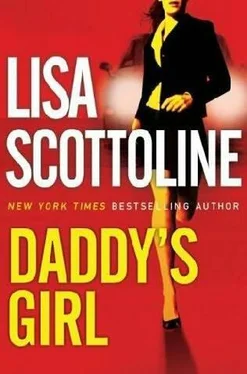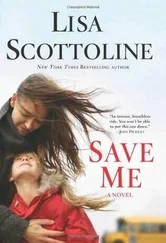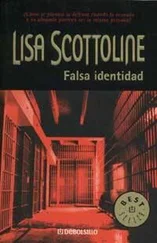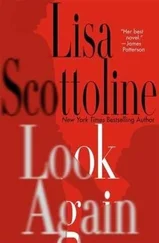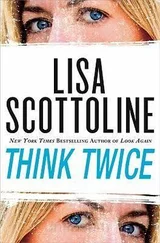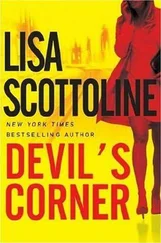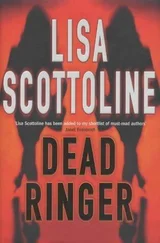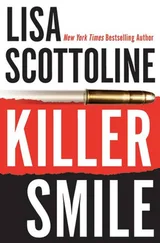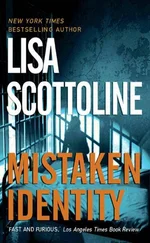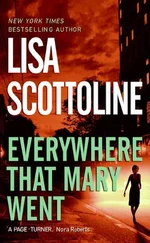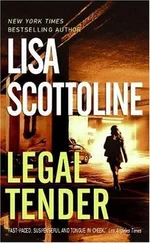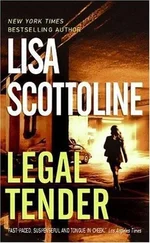Could these boards break, too? If they do, will I be buried alive? And what about oxygen? I've grown fond of oxygen.
Nat banished the negative thoughts. She was standing in a man-made room of some kind. It seemed too elaborate for a root cellar. She cast the penlight on one of the boards in the back, then noticed some carvings. She made her way over and shone the light on the boards. Carved into it were the initials c.j., and underneath, t.j. She ran her fingers over them. They had been etched by a crude knife. She cast the light elsewhere on the wooden board. There were more initials: l.m., cm. Then a date: april 28, 1860.
"My God," Nat said aloud. She couldn't believe her eyes. 1860. She knew what it had to be, because she taught it every year. She must be seeing a stop on the Underground Railroad. A series of holes, hidden trap doors, and secret hiding places for slaves escaping from Maryland and points farther south. Some of the stops were homes with hiding places, but many more were in outbuildings, to make escape easier if the slavecatchers came. Chester County was dotted with historic houses that hid runaway slaves, houses that still existed today. Nat knew the houses by heart, taking a historian's delight in the old-fashioned names: Moses and Mary Pennock's house. Eusebius and Sarah Barnard's house. Mordecai and Esther Hayes's. Isaac and Thomazine Meredith.
Nat stood, marveling. This hole must have been one that no one had found yet. One that hadn't been discovered until now, perfectly concealed for almost a hundred years. The secret hiding place for so many poor, desperate souls. Nat had taught the History of Justice, and now she was inside it. She felt tears come to her eyes and blinked them away, running her fingertips over the boards. She wondered how many of these courageous people had made it north to freedom. How many had turned back. How many have been captured, beaten, or even killed.
This was sacred ground, and so were its boards, blanketed with initials and dates, which Nat read by penlight. l.b., Aug 1859, m., 1862, lu, 1861. Some of the slaves had written their names: January grandy. hannah Clemen. Some had numbers next to their names, which Nat guessed were their ages:, jed, 19. mary, 9. Many of the initials were no longer visible, but she could feel them with her fingertips. She remembered telling Angus about the Underground Railroad that day in the Beetle, on the way to the prison. She couldn't wait to tell him about the secret hole hidden under the floor.
Nat blinked. A secret hole hidden under the floor. People used it to escape to freedom. She flashed for the umpteenth time on Saunders's last words.
Tell my wife. It's under the floor.
She thought about it, as she had thought about it so many times before. But this time she looked at it in a different light. Saunders had said, "It's under the floor." When he'd said that, he'd been lying in the security room, the one without the videocamera. Maybe he hadn't meant that whatever "it" was was under the floor at his house. Nat had thought that only because the "tell my wife" part came first. But for a second, she set aside the "tell my wife" part. What if Saunders had meant that "it" was under the floor right where he lay-in the prison itself? And what would be under the floor at a prison?
A tunnel?
"Whoa," Nat said aloud, in the dark hole. It could be true. It wasn't crazy. Tunnels could help people escape. She was standing in one. But who would a tunnel in a prison be for? It only took a minute to come up with the answer.
Richard Williams.
Williams was the drug kingpin being held at the prison for almost a year. He'd want to escape before his trial, because with his charges, he'd go to prison for life. And he'd have the dough to get a tunnel built for him. He could have paid Graf to do it. Then Graf could have gotten his brother the contractor in on the scheme. It could easily have been disguised as part of the renovations. If Phoenix, or at least Jim Graf, had been digging at night, when his brother Joe Graf was on duty, nobody would have been the wiser. Especially if Machik were in on it, too.
Nat had an epiphany. The scam wasn't drugs. It was something far more lucrative, and far worse. It was letting a dangerous killer escape through a tunnel under the floor. How much would Williams pay to beat a federal rap? A couple million, maybe more? No wonder Machik got rid of the rugs in that security room so fast. The rugs had covered the mouth of the tunnel, and any inspection of them would have shown dirt on the underside. No wonder they had remodeled the room when Nat and Angus started asking questions. They had to keep hiding the tunnel. No wonder there had been orders for so many two-by-fours in the construction file. The two-by-fours had reinforced the length of the tunnel. It had taken them a year to dig, and they were about to put it to use-and get away with setting a ruthless murderer free.
Nat gasped as she realized the implications. Saunders was killed because he had discovered not a drug conspiracy, but an escape conspiracy. Upchurch was still the sacrificial lamb. Then Nat realized something else. If the murders of Saunders and Upchurch had been to conceal the escape, maybe the prison riot wasn't random at all-had been staged at one end of the prison as a way to distract everyone from the killings at the other end. A riot in the RHU would have been the perfect way to keep everybody occupied while Saunders and Upchurch were being murdered in the security office.
Her thoughts clicked away. It all made sense. She'd had to fight upstream to get help that morning. All the SWAT team guys and C.O.s were running the opposite direction, toward the RHU. It was only by chance that she'd been attacked, run the wrong way for help, and discovered the slaughter in the security room.
She felt astonished at the ambition of the conspiracy, then flashed on the newspaper that she'd seen today. Williams's federal trial was scheduled to start this week. She remembered that the article had said that his trial would be on Tuesday. It jibed with why Graf would be meeting with Parrat today at Houlihan's. They would have been discussing last-minute plans. Williams would be moved to Philly tomorrow.
That meant that Williams would have to escape from prison tonight.
And Nat was the only one who knew.
Nat stared stunned at the carved initials illuminated by the penlight, pale and thin as moonshade in the dark. She tested her theory and it sounded right. But what could she do about it? How could she tell someone? She had no cell phone, nothing. She checked her watch, the numerals glowing an eerie green, anachronistic in this historic place. It was 4:10 p.m. They'd wait until dark to let Williams escape. They'd need cover of night. She had to stop them and she didn't have much time.
First, she had to get out of the hole. She shone the penlight on the wall leading out to the first hole. The stones that had looked random before had been wedged into the wall in an ascending pattern, makeshift stepping-stones from so long ago. She marveled at the ingenuity and heart of these benighted people. She put a foot on the first stepping-stone, and it held strong and stable, then used the others to make her way slowly to the first hole, where she figured out a way to get out. She'd dig out footholes for herself on the side of the wall. She could do it, now that she saw how it was done. She even had a penknife to scoop them out. She whispered a prayerful thanks and started digging.
Almost two hours later, she came out of the hole with a plan an no time to waste. She brushed dirt from her pants and coat, ripped the blue tarp off the Neon, and yanked open the barn door. A lone car traveled down the road, headlights coming and taillights going. Sunday night traffic would be light. She'd be more exposed, vulnerable to the cops, but she didn't have any choice. At least it was dark out, a frigid night so piercingly clear that the stars scattered across the night sky looked like diamonds on a jeweler's black velvet.
Читать дальше
